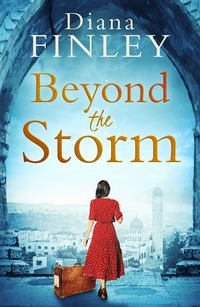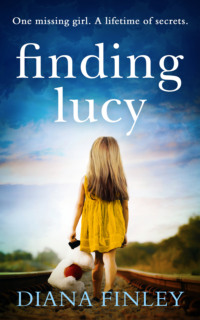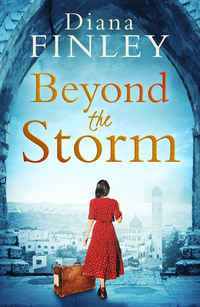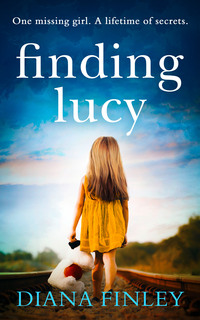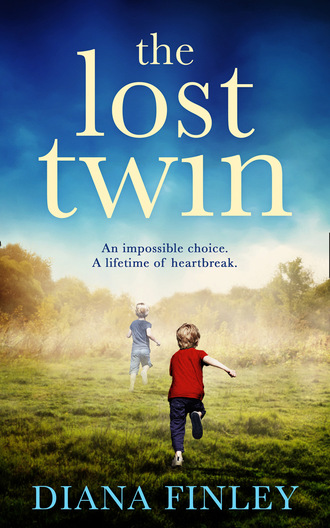
Полная версия
The Lost Twin
‘Nancy boy!’ one yells. ‘Weirdo!’ ‘Cissy!’
‘Youuu, got no dad no more – thaaat, means your mum’s a whore!’ someone sings.
Sean, a friend of Guy’s, suddenly leaps out from behind the school gate. He sticks his foot out in front of me and I go flying. The metal bolt on the gate catches my forehead and my chin crashes to the asphalt. There’s a moment when everyone is frozen in shock, including me. Then they start flinging mud from the flower bed at me. I get to my feet and run round the corner as fast as I can. I keep running.
When I get home I pull the front door open and slam it shut behind me, panting. Mum is just taking a cup of tea to Auntie Erna. They both look up in alarm as I fling myself on the sofa. I can’t hold back the tears. My clothes are all muddy and my face must be mud-smeared too, and now the tears will make even more of a mess of it. I have a large bruise and graze on my chin, and a deep cut on my forehead.
‘I hate it! I hate it!’ I shout bitterly.
‘Barry, sweetheart, whatever is the matter?’ Mum asks. ‘What’s happened?’ She gasps. ‘Your face!’
‘I never want to go back to that school.’
Mum rushes over to me, gently touching my face and peering at the torn knees of my trousers. ‘Oh no! Oh, Barry! Oh, you poor love!’
Auntie Erna gets up and sits next to me on the sofa. She pats my leg. ‘Has someone at school been unkind to you, my dear? Children can be very cruel sometimes, can’t they?’ She speaks softly and calmly.
Auntie Erna always seems to know why things are difficult for me. She understands. That makes me feel better. Mum just seems to fuss.
‘The others hate me because I’m cleverer than they are. They don’t want to learn. They think I’m weird because I like learning. I wish I could go to a different school.’ My chest is heaving and I’m trying to hold back tears.
‘Oh, Barry love, you know that’s not possible,’ Mum says. ‘It was the only local school that had a place. I know some of the children are a bit rough, but I’m sure they don’t really hate you. Maybe I should go and talk to the head teacher,’ she says, looking at Auntie Erna.
‘No!’ I shout. ‘That would just make it worse – they’d hate me all the more for being a sneak!’ Why couldn’t Mum see that?
‘Do you know,’ says Auntie Erna, ‘I have an idea.’ She pauses. ‘But first, let’s think about this, Barry. I know that you are a clever boy and you are quick to learn your lessons at school, but you need to learn another lesson – and that is not to talk about being cleverer than the other children.’
‘But it’s true, Auntie Erna!’
‘It may well be true, but other children won’t like to hear you say it – it might upset and annoy them. They might think it’s a little boastful, Barry.’
I look down at my feet. I think about this, and nod.
‘But now listen, both of you. This is my idea.’
Chapter 10
1982
Robert
The social worker is called Mrs Wilson. She’s quite nice – she actually talks to me.
‘Now, Robert, I’ve known the people who have offered to foster you for many years. Mr and Mrs Carter, they’re called, and they are truly lovely. They may let you call them Len and Betty,’ Mrs Wilson says as we’re driving along.
We seem to be travelling miles through the Northumberland countryside. The council must have decided to put me in the back of beyond, where I won’t cause any trouble.
‘Yes,’ she continues, ‘they’re very experienced. They’ve fostered dozens of children over the last thirty years or more.’
Thirty years or more! I reckon that means they must be very old, probably over sixty. I’m not too keen on the idea of living with such old people … but it can’t be worse than the children’s home. I hated it there; it was like living with total strangers who didn’t give a toss about me. So I decide it can’t hurt to give it a try. Len and Betty Carter? Yep, definitely old fogey names. Oh well, let’s see what they’re like …
Mrs Wilson drives me for what feels like hours down narrow, twisty roads through countryside and one or two villages. Nothing except hills and woods, and fields with loads of sheep, and occasional villages. At long last we come to a row of small houses on the edge of a village.
‘Used to be miners’ cottages, these,’ Mrs Wilson tells me, ‘but now that nearly all the pits have closed, it’s a mixture of people living in them. Pretty, aren’t they, Robert?’
‘Hmm … dunno.’
‘Nearly there …’
We follow the road around a corner and up a small hill, with a row of about a dozen cottages at the top. Mrs Wilson stops the car in front of the end house.
‘Here we are, Robert,’ she says. ‘This is going to be your new home.’
She turns round to look at me. ‘Try and make the most of it, love, won’t you? Len and Betty are really nice, and I know they’ll like you.’
How on earth can you know that? I think. I’ve not met many people who like me. My heart is racing and butterflies are swirling in my stomach. I feel a bit sick. As we approach the front door, I can see a woman watching us through the front window. I’m scared, but don’t want to show it, so I hunch my shoulders, look down at my feet, and slouch moodily behind the social worker. I glance up at the window again for a moment. The woman has disappeared.
Suddenly the front door is flung open and an oldish woman rushes out and steps onto the path towards me. She’s short and has grey hair. A tall man who also has grey hair appears behind her.
The woman hurries straight towards me and before I have a chance to think of resisting, she presses me into her bosom and gives me a huge hug. I bet I’ve gone bright red. I push my hands deep into my pockets. I shuffle my feet and look at the ground. The man hovers behind her as if he’s waiting for his turn. I push my hands further into my pockets and hunch my shoulders even further.
‘Hello, Robbie, my darling!’ the woman says. ‘My name’s Betty and this is Len. We’re so glad you’ve come to live with us, pet. This is your home now.’
‘Aye, laddie,’ says Len, now joining in the hug. ‘Welcome, welcome.’
‘Now, my darling,’ continues Betty, taking no notice of my reluctance to respond, ‘if it’s all right with you, we’re going to call you Robbie, because it suits a young lad like you. Mebbes in the future you’ll want to be Rob? That’ll be for you to decide later, if you want to, pet. But for now, we’ll just stick with Robbie, shall we?’
She doesn’t pause for an answer.
‘Eeee, Robbie, what a bonny lad you are! Isn’t he bonny, Len? Clever too, I’ll be bound. Well, the world’s your oyster, Robbie, my darling. You could do anything you set your mind to, am I right?’
I’m so astonished at the warmth of this greeting, and that these friendly, elderly people seem to think they know immediately who I am, and might become, that I remain speechless, silent, looking from one to the other. I can feel an uncertain smile waxing and waning on my face, like the sun disappearing and then reappearing from behind a cloud. Their smiles are anything but uncertain. They positively beam at me, as if I’m the best thing that could have happened to them.
I feel suddenly as though I’m a real person for the first time in my life. It’s the most extraordinary feeling I’ve ever experienced. It’s as if they really want me. I feel I can tell they actually want me. I have a struggle to hold back tears, and they aren’t tears of sadness.
‘Come on, Robbie, pet. Let’s not wear the doorstep down! Come on in and I’ll show you your room.’
Len picks up my bag. ‘Aye, up you go with Betty, lad. I’ll bring your stuff.’
Betty leads the way up a narrow staircase. She points out the bathroom and toilet, and opens a door.
‘In you go, pet.’
She stands to one side to let me past. The room isn’t large, but it’s flooded with golden light from the sun, just starting to go down in a clear sky. There’s a double window looking out onto green fields and heather-covered hills beyond.
‘Best view in the house, this room!’ says Betty, squeezing my arm.
‘It’s a nice room, er … Betty.’
She beams at me. ‘We want you to be really happy here, Robbie,’ she says. ‘What sort of thing do you like doing best, sweetheart? What did you like doing at the children’s home?’
‘I didn’t like much. I liked reading, because then I could be by myself.’
‘Oh, that’s a bit sad. Sounds like you must have been lonely? Well, you can read as much as you like here, Robbie, but there’s plenty else to do, and Len’ll not let you get away with not seeing his allotment! It’s his pride and joy!’
She gives me another squeeze. I don’t pull away this time. I guess I’ll have to get used to the hugs.
‘Now you get settled in, pet, and then Len will take you for a wander about – and to see his allotment,’ she says with a smile.
She turns to look behind us and then whispers confidentially in my ear. ‘Just tell him how grand it is, Robbie, even if you don’t give a toss. It’ll make his day.’ She giggles and gives me a wink.
***
That first evening is quite hard work for me. Len and Betty are lively, talkative people. I’ve never experienced being included in a conversation before. I like them all right. I like the house and especially my room, I like Len’s allotment, I like the ‘toad in the hole’ Betty makes for supper. But I sense that they want me to be happy with them and act like ‘one of the family’. That feels quite a strain at first. I’m not used to it.
‘So tell us something about the children’s home, Robbie,’ Betty says at teatime. ‘Did you get on all right?’
‘I … I hated it. We had to share a bedroom, four of us boys. The others were OK, but they weren’t friends of mine. Some of the staff were all right, but they were like … strangers. That was how it felt. Living with strangers. They weren’t cruel or anything, but they could be hard. There was no fun there.’
I was finding my thoughts difficult to put into words, yet I wanted to try; I wanted to tell them.
‘There was no warmth, no understanding, no personal feeling, no …’
‘Eee dear, Robbie. Sounds like they took basic care of the bairns, but mebbe didn’t give them any love. Am I right?’
‘I suppose so,’ I muttered.
How could she know straightaway exactly what’s on my mind, but I’m too embarrassed to say?
***
When I wake the following morning, I’m glad to remember where I am. The bedroom – my bedroom – looks sort of friendly. It needs something on the walls though. Some posters maybe. I don’t think Len and Betty would mind if I put some up. I’m also pleased to remember it’s Saturday, and that I won’t have to face starting at the new school for another couple of days. I go downstairs. Len’s sitting at the kitchen table, reading a newspaper.
‘Morning, Robbie, did you sleep all right?’
‘Yes thanks.’
‘Well, there’s no school today or tomorrow. What do you fancy doing, lad? Will I take you for a tour of the village? Not that that’ll take very long – there’s not a lot to it!’
‘Yes, OK, and then can we go back to the allotment?’
Len’s face creases with pleasure.
‘I liked it there …’
‘’Course we can, lad, ’course we can.’
Betty comes in from the garden, holding a large empty basket. I guess she’s been hanging out some washing. She puts the basket down and puts her arms round my shoulders and gives me a hug, the first of the day.
‘Here he is, the bonny lad!’ she says, smiling broadly at me.
‘Now, what’ll you have for breakfast?’
Whatever Len and Betty might have been told about me, and even though they’re quite old, from the very first day, they just seem to accept me for who I am. Most people are quite scared of teenage boys, I’ve discovered – and I’m nearly a teenager. Not Len and Betty. They treat me with affection and humour such as I’ve never experienced before.
***
I’m really nervous about my first day at the new school, but I try not to show it. In the end it’s not too bad. Len walks to the bus stop with me. There are two other lads waiting, one about my age and one a bit older, and a girl also about my age. They all greet Len in a friendly way, looking at me with interest, but no hostility.
‘This here’s a new pal for youse kids,’ Len tells them. ‘Robbie’s his name, and he’s starting at your school today.’
I feel my cheeks start to burn, but the other kids just grin at me.
‘Hiya, Robbie, welcome to Hartland High. I’m Danny by the way,’ says the boy of my age.
‘Yeah, Hi. I’m Buzz,’ says the bigger lad.
‘Hi, Robbie! My name’s Paige,’ says the girl.
I’m amazed at how friendly they are. Maybe the arrival of a new boy is a big event in this area.
It’s the same in the school itself. Hartland High’s not very big, being in a small country town. The teachers and the kids all seem keen to talk to me.
Over the coming weeks, I settle quite well and begin gradually to make some friendships, though it’s still hard for me trust other kids enough to get really close. Len and Betty always encourage me to bring any friends home ‘for tea’, like we’re all little kids! I don’t mind, and the others seem to enjoy it too, especially Betty’s baking!
Len and Betty ask me loads of questions about my time at school: what lessons I’ve had, who I sat next to, which ones do I like best, are the teachers nice … that sort of thing. They expect me to talk back to them as well. I can’t get away with being moody and silent. Over the coming months, any grumpiness on my part is greeted with concern and understanding, and often with good humour, but they’re never fazed. If I come home from school looking upset or angry, there’s no question of stomping up to my room to spend time on my own, as I’ve often done in the past. No, they’ll have none of that! They always insist that I sit down and talk to them, while they try to prise the reason for my unhappiness from me.
‘Come on now, Robbie, my darling, out with it! You tell your auld Auntie Betty what the problem is … go on. Now, let’s see … have any of those bad lads at school been nasty to you? No? Well then, have you fallen for one of the gorgeous girls? But mebbe she’s not interested … Is that it? Doesn’t fancy you like you fancy her, hmm? Though I can’t think why she wouldn’t, handsome lad like you – it’s her loss, the daft lass!’
So gradually, the cause of my bad mood is coaxed from me, and they either comfort or reassure me, or we all end up laughing uncontrollably together.
***
For the first time in my life I feel a part of a family. Even Len and Betty’s adult children greet me warmly when they visit.
‘It’s good for them to have a youngster to care for at their age,’ their eldest son, Harry, tells me, patting my shoulder confidentially. ‘It’ll keep them young, like.’
‘Aye,’ adds their daughter Shirley. ‘I’m right glad there’s a sensible lad like you living with them; keeping an eye on them an’ all, Robbie. Anything wrong, anything worrying you, just give us a ring. You’ve got me number.’
No one had ever considered me good for other people or anything else before, and least of all sensible! But I like their genuine faith in me. I like Len and Betty in a way I’ve never liked anyone before. I feel a closeness, which warms and softens my heart. I feel I have to live up to the family’s positive opinion of me. I want to be liked by them. It’s the first time I’m conscious of caring what anyone else thinks of me. It’s the first time the concept of love has any real or special meaning for me.
***
In the second year, we have a new form teacher, Mr Lewis, who takes a special interest in me from the start. He also teaches English and drama, my favourite subjects. I really like Mr Lewis, perhaps because I can tell he likes me. Mr Lewis tells me I have ‘great potential’. Nobody has ever said that to me before. Mr Lewis discovers how much I like reading books. I’d never told anyone about it – he must just have noticed I spend a lot of time with my nose in a book. He takes trouble to find out what sort of books I enjoy, and helps me to make selections from the school library. Mr Lewis encourages me to ‘research’ topics in my schoolwork, like in history or geography, by finding relevant books in the school or public library.
Mr Lewis meets with Len and Betty regularly on parents’ evenings too – they never miss an opportunity to attend. I’m always included in the conversation, and I’m surprised to find that Mr Lewis has an amazing amount to say about me. I don’t understand how Mr Lewis could know so much about me, when I don’t even know it myself! I wonder if perhaps he just makes it up as he goes along.
‘Robbie’s an exceptionally bright lad,’ he says, nodding at me, ‘especially when you consider his past. He’s really blossoming this year in all his work, but in particular, he’s showing outstanding ability in English and drama. I’m sometimes astonished by how wide his vocabulary is for a lad his age. He reads widely, and has a real talent for writing, whether stories and imaginative accounts, or factual descriptions. He’s got a truly vivid imagination. My one main concern is that his confidence is still so fragile.’
He looks at me sympathetically as he says this. He reaches out and clasps my shoulder. I probably turn beetroot-red. I can feel my cheeks burning.
‘You’ve got to believe in yourself, Robbie. Try to think the best of yourself and what you can do. Be ambitious. Always expect the best, rather than expecting the worst.’
I shuffle uncomfortably on my chair. Mr Lewis nods and smiles at me, as if this is just what he would expect. Then he turns to Len and Betty.
‘Robbie doesn’t always realise just how good he is, how able – but he is. I’ve been amazed to see how he can hold an audience – in drama, for example. He’s got a really special talent. He could be an actor; he’s such a fantastic mimic. He can copy any accent, maybe because he’s moved around a lot. He has the other children in stitches sometimes.’
‘Eeee, Robbie! D’you hear that? Isn’t that grand, son?’ Betty squeezes my arm affectionately.
‘Aye,’ says Len, ‘he’s got a funny way about him all right – but you’ve got to apply yourself too, lad.’
‘That’s right,’ says Mr Lewis, ‘the fact is there’s no limit to what Robbie is capable of, if he does apply himself. He can go on to do his GCSEs, and then his A levels. In fact, there’s no reason why he can’t go to university one day.’
Len claps me on the back. ‘Just listen to that, Robbie me lad. There’s a great future for you. Never mind if the past has been tricky. The past is past and gone; it’s now and from now on that matters. Work hard at all your schoolwork, even the bits that aren’t your favourites – your greatest interests, like. Could be “Professor Robbie” one day if you put your mind to it!’
***
I soon get to know Len’s two great interests in his life since retiring from the pit, one being fishing and the other being working on his allotment. Over time I learn to love sharing both these activities with him. Len teaches me how to set the bait on the rod, how to identify the best places along the river to catch different sorts of fish, how to hold on when the line jerks and pulls – and then how to draw it in carefully, smoothly, always steadily, though I’m wild with excitement. Actually catching fish for us all to fry with chips for tea is the ultimate joy for me, but most of all I love sitting quietly at the riverbank, listening to Len’s stories of his life down the mine. It’s like stories of another era to me. No other adult has ever talked to me of things that mattered. All around them, the mines have been closing down.
‘They’re tekkin’ the heart out of the communities,’ Len tells me, shaking his head sadly. ‘Soon there’ll be no work for lads round here, no jobs at all.’
Beyond the village, the beautiful Northumberland countryside stretches for miles. Despite living half his life underground, Len is a countryman at heart and he knows about every aspect of it. He teaches me to recognise birds by their plumage and their song, and to be quiet in the countryside; to listen to the sounds around me and distinguish one birdcall from another.
Betty’s great love is flowers. At each time of year we bring her armfuls of whatever blooms are in season and I learn the names and characteristics of plants I’d never even heard of before. Len and Betty’s fireplace or windowsill is never without a colourful vase of flowers to brighten it in the spring. As well as decorating the house, we gather plants for food, like young nettles or wild garlic to make soups or flavour stews.
As the year progresses into the later summer and autumn we bring wild blackberries, raspberries and damsons for jam, bottling and making tarts. Later in autumn we find edible mushrooms, which Len helps me to identify, using a much-fingered guide dating from the long-gone days of wartime rationing. At first, I’m scared to eat them, convinced we’ll all drop dead from poisoning. But under Len’s confident guidance, I soon learn to recognise the edible field mushrooms, big boletus, and the curly, yellow ones that they call ‘scrambled egg’. More importantly, Len shows me how to recognise and keep away from the poisonous ones!
At home Betty and I wash the mushrooms carefully without bruising them. Then we pat them dry gently with a clean tea towel, and fry them for tea with onions, eggs, and a bit of rosemary from the bush next to the kitchen door. From that day to this, the smell of rosemary is always enough to set my mouth watering, like a Pavlovian dog.
Конец ознакомительного фрагмента.
Текст предоставлен ООО «ЛитРес».
Прочитайте эту книгу целиком, купив полную легальную версию на ЛитРес.
Безопасно оплатить книгу можно банковской картой Visa, MasterCard, Maestro, со счета мобильного телефона, с платежного терминала, в салоне МТС или Связной, через PayPal, WebMoney, Яндекс.Деньги, QIWI Кошелек, бонусными картами или другим удобным Вам способом.


